Yellowstone in Winter
Yellowstone in Winter
Winter in Yellowstone is steam and silence and dances of fire and ice. From the edge of Old Faithful, the centerpiece of the largest active geyser basin on earth, explosions echo like war drums beneath my feet. The ground hisses. A jet of scalding water erupts 90-feet in the air and crystalises instantly in the cold, falling like falsetto keys. This is the boiling ground. A wilderness of more than 10,000 hot springs, bubbling pools and tapestries of magma heated water. Temperatures here can plummet to fifty below. Herds of wild bison, elk and wolves roam free. Winter in Yellowstone is violence and solitude, life or death, a clash of fire and freeze.
Mammoth Hot Springs
Dripping down the hillside the thermal terraces of Mammoth Hot Springs are like an enormous abstract art installation. And they’re alive. Water heated deep underground rises through cracks in the earth and deposits minerals, which solidify into ever-changing travertine sculptures. Where the water flows bacteria and algae feed, creating bright oil-slick patterns that swirl in indigo, orange and lime – like droplets falling on a Matisse.
Wolves
On a distant ridge I saw them: a pack of wolves like black shadows, running free against the pure white snow. Brought in to reduce elk overgrazing (a problem that seemingly couldn’t be cured by human means), they have subsequently transformed the landscape itself. The elk stopped grazing in places they would be vulnerable – forests flourished there, riverbanks strengthened, songbirds and beavers returned. It was like medicine for the entire eco-system.
But there was something else about their presence too. Wolves are part of our ancestry: we have been enemies and brothers for 10,000 years. Seeing them in the wild reminds us, perhaps, of the wildness in us too. “When you look into a wolf’s eyes,” Doug Smith told me, project leader for wolf restoration in the park. “It starts a fire in you.”
Yellowstone in Winter
The American painter Anne Coe called Yellowstone – “the place where the centre of the earth finds an exit and gives us a glimpse of its soul.” This is creation in its most primal form. I could sense the magma beneath me, the shifting of enormous tectonic weight, steam rising and falling like breath. The earth felt alive and evolving and I a trace on its skin.
These extracts are taken from an original article published in The Times – Yellowstone in Winter (2/13/16)

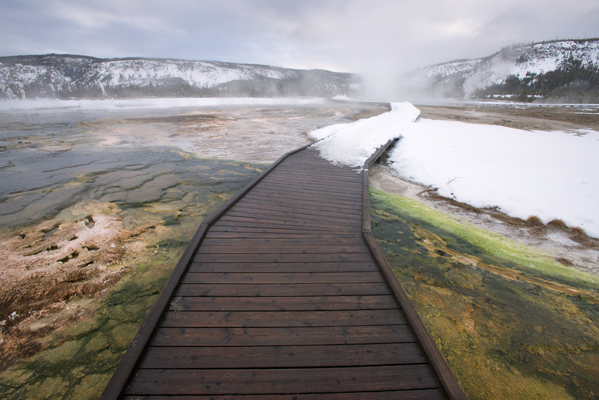
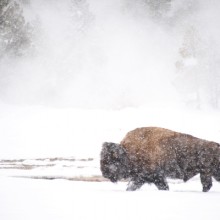
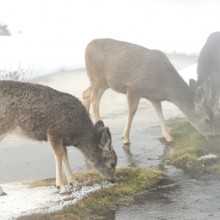
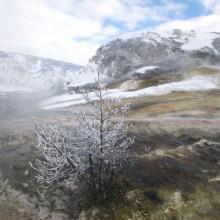
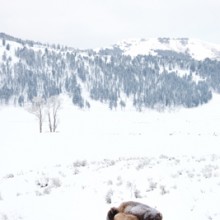
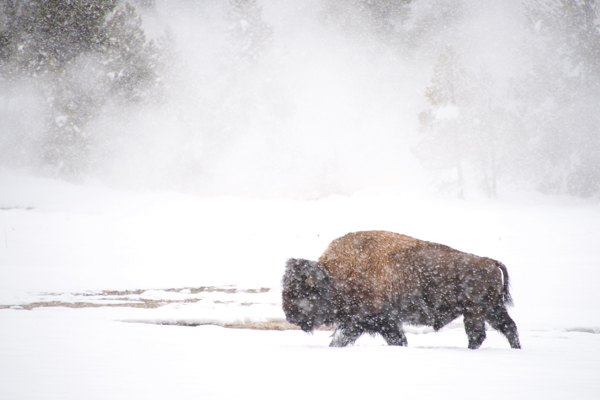
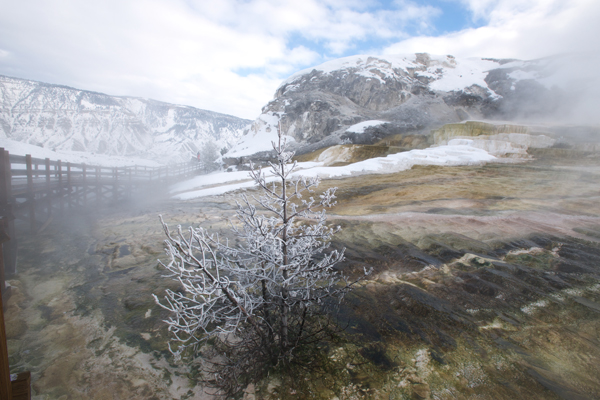
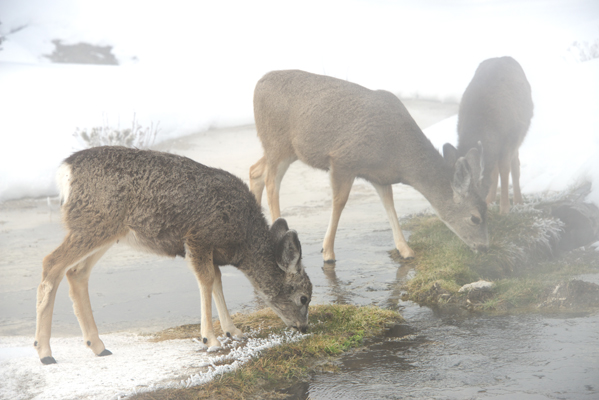
Comments...